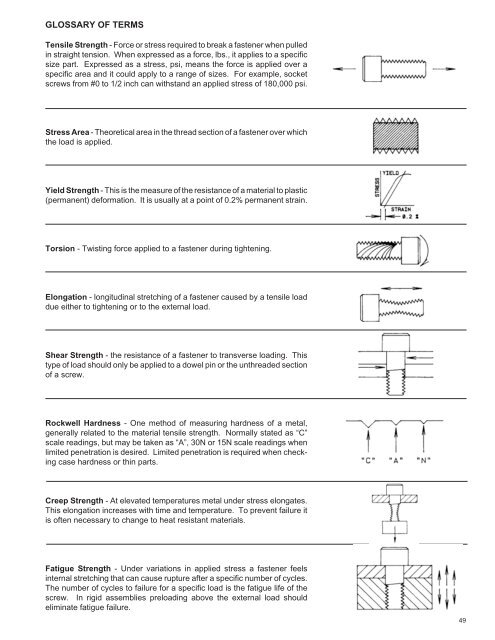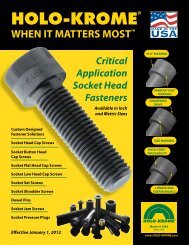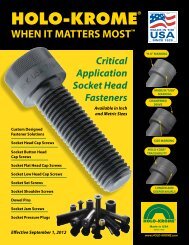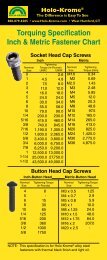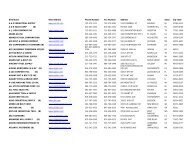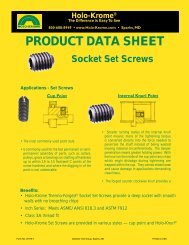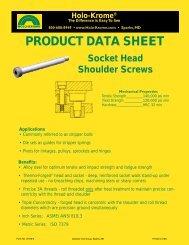Consolidated Tech Man - Holo-Krome
Consolidated Tech Man - Holo-Krome
Consolidated Tech Man - Holo-Krome
You also want an ePaper? Increase the reach of your titles
YUMPU automatically turns print PDFs into web optimized ePapers that Google loves.
GLOSSARY OF TERMS<br />
Tensile Strength - Force or stress required to break a fastener when pulled<br />
in straight tension. When expressed as a force, lbs., it applies to a specific<br />
size part. Expressed as a stress, psi, means the force is applied over a<br />
specific area and it could apply to a range of sizes. For example, socket<br />
screws from #0 to 1/2 inch can withstand an applied stress of 180,000 psi.<br />
Stress Area - Theoretical area in the thread section of a fastener over which<br />
the load is applied.<br />
Yield Strength - This is the measure of the resistance of a material to plastic<br />
(permanent) deformation. It is usually at a point of 0.2% permanent strain.<br />
Torsion - Twisting force applied to a fastener during tightening.<br />
Elongation - longitudinal stretching of a fastener caused by a tensile load<br />
due either to tightening or to the external load.<br />
Shear Strength - the resistance of a fastener to transverse loading. This<br />
type of load should only be applied to a dowel pin or the unthreaded section<br />
of a screw.<br />
Rockwell Hardness - One method of measuring hardness of a metal,<br />
generally related to the material tensile strength. Normally stated as “C”<br />
scale readings, but may be taken as “A”, 30N or 15N scale readings when<br />
limited penetration is desired. Limited penetration is required when checking<br />
case hardness or thin parts.<br />
Creep Strength - At elevated temperatures metal under stress elongates.<br />
This elongation increases with time and temperature. To prevent failure it<br />
is often necessary to change to heat resistant materials.<br />
Fatigue Strength - Under variations in applied stress a fastener feels<br />
internal stretching that can cause rupture after a specific number of cycles.<br />
The number of cycles to failure for a specific load is the fatigue life of the<br />
screw. In rigid assemblies preloading above the external load should<br />
eliminate fatigue failure.<br />
49


